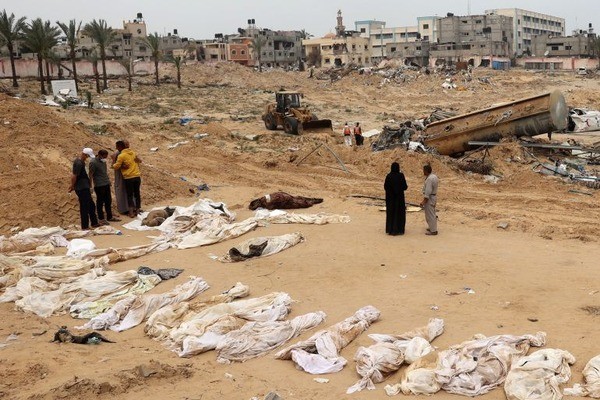Iran’s Unyielding Stance Against Israeli Aggression: A Complex Geopolitical Struggle
In the eyes of many, the Islamic Republic remains the last bastion in the Muslim world against unchecked Israeli aggression
Loading...

The phrase was coined by Serbian perpetrators of genocide in an attempt to conceal their atrocities during the Bosnian war.
For the past eight months, like many worldwide, my day begins with checking news from Gaza and the broader Palestine region. I rely heavily on reports from individuals on the ground in Gaza, primarily through social media channels, to obtain accurate information about ongoing events.
Simultaneously, I follow mainstream media, leaders, representatives of prominent international organizations, and scholars to gather diverse perspectives. Unfortunately, I often hear them referring to the ongoing genocidal campaign against Palestinians as "ethnic cleansing." Each instance of this phrase reminds me of the war I experienced in Bosnia and Herzegovina during the 1990s.
"Ethnic cleansing" is a term coined by the perpetrators of genocide during the conflicts that led to the dissolution of Yugoslavia. It stems from military jargon denoting the "cleaning" of an area after a military operation. The addition of "ethnic" by propagandists created the term "etničko čišćenje," which was then disseminated and perpetuated by the media, politicians, academia, and international organizations.
While the United Nations acknowledged "ethnic cleansing" in 1994 as a method leading to genocide and crimes against humanity, it lacks legal definition and thus cannot be prosecuted. Gregory Stanton, founder of Genocide Watch, views "ethnic cleansing" as a euphemism for genocidal practices, employed to obfuscate events deserving genocide prosecution and dehumanize victims.
The disintegration of the Socialist Federal Republic of Yugoslavia began in the late 1980s, initiated by policies implemented by then-Serbian President Slobodan Milošević. Fearing a loss of power amid political turmoil and Yugoslavia's disintegration, Milošević orchestrated a propaganda campaign instilling fear and hatred across all sectors of society.
His propaganda aimed to foster a division between "us" (the Serbs, portrayed as the superior nation) and "them" (including Kosovo Albanians, Croats, and non-Serbs in Bosnia). This divisive narrative justified what they termed "ethnic cleansing" and "human resettlement" to create mono-ethnic states, particularly Greater Serbia.
The international community, including Western governments and organizations like the UN, adopted this terminology due to a reluctance to acknowledge ongoing genocide within Europe. The media's portrayal of the war in Bosnia, simplifying it as a result of "centuries-old hatreds," further entrenched this narrative.
Recalling two harrowing episodes from the Bosnian war, particularly the massacres in Zvornik and Srebrenica, underscores the brutality inherent in "ethnic cleansing." The genocide in Srebrenica, where over 8,000 Bosnian Muslims were slaughtered, highlighted the extent of the atrocities.
Similarly, the situation in Gaza and Palestine mirrors these events, with the Israeli army targeting and massacring Palestinian civilians. Despite this, many still use the term "ethnic cleansing," often inadvertently influenced by propaganda and unaware of its origins during the Bosnian genocide.
However, precise language matters. By accurately labeling atrocities and demanding accountability, we honor the victims and survivors while challenging genocide denial. Refusing to use terms like "ethnic cleansing" acknowledges the gravity of these crimes and seeks to prevent their repetition.
In the eyes of many, the Islamic Republic remains the last bastion in the Muslim world against unchecked Israeli aggression
Analysts say US push for Gaza post-war phase is ‘unrealistic’ as Israel vows to continue fighting in besieged territory.
And recent Iraqi history can tell us how.
